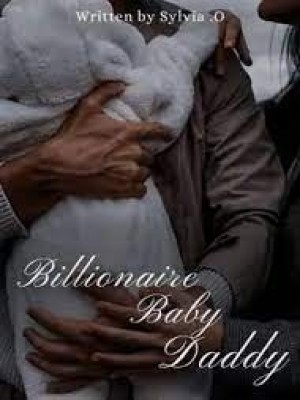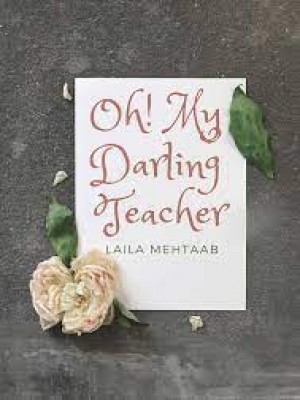REVEALS THE EXPLOSIVE NATURE OF MY EARLY CAREER.
The remarkable--I might even say amazing--personal adventures which I amabout to relate occurred quite recently.
They are so full of interest to myself and to my old mother, that Ihasten to write them down while yet vivid and fresh in my memory, in thehope that they may prove interesting,--to say nothing of elevating andinstructive--to the English-speaking portions of the human racethroughout the world.
The dear old lady to whom I have just referred--my mother--is one of thegentlest, meekest, tenderest beings of my acquaintance. Her regard forme is almost idolatrous. My feelings towards her are tinged withadoration.
From my earliest years I have been addicted to analysis.
Some of my younger readers may not perhaps know that by analysis ismeant the reduction of compound things to their elements--the turning ofthings, as it were, inside out and tearing them to pieces. All thecomplex toys of infancy I was wont to reduce to their elements; I turnedthem inside out to see what they were made of, and how they worked. Adoll, not my own, but my sister Bella's, which had moveable eyelids anda musical stomach, was treated by me in this manner, the result beingthat I learned little, while my poor sister suffered much. Everythingin my father's house suffered more or less from this inquiring tendencyof my mind.
Time, however, while it did not abate my thirst for knowledge, developedmy constructive powers. I became a mechanician and an inventor.Perpetual motion was my first hobby. Six times during the course ofboyhood did I burst into my mother's presence with the astounding newsthat I had "discovered it at last!" The mild and trustful beingbelieved me. Six times also was I compelled to acknowledge to her thatI had been mistaken, and again she believed me, more thoroughly,perhaps, than at first. No one, I think, can form the least idea of thedelight with which I pursued this mechanical will-o'-the-wisp.
Growing older, I took to chemistry, and here my love for research andanalysis found ample scope, while the sufferings of my father'shousehold were intensified. I am not naturally cruel--far from it.They little knew how much pain their sufferings caused me; how earnestlyI endeavoured to lessen or neutralise the nuisances which the pursuit ofscience entailed. But I could not consume my own smoke, or preventexplosions, or convert bad and suffocating odours into sweet smells.
Settling down to this new pursuit with intense enthusiasm, I soon beganto flow in my natural course, and sought to extend the bounds ofchemical knowledge. I could not help it. The particular direction inwhich my interest ultimately became concentrated was that of explosives.
After becoming acquainted with gun-cotton, nitro-glycerine, dynamite,lithofracteur, and other combinations of powerfully-explosive agents, Itook to searching for and inventing methods by which these might beutilised. To turn everything to good account, is a desire which Icannot resist.
Explosives naturally drew my attention to mines--tin-mines, coal-mines,and other commercial enterprises. They also suggested war andtorpedoes.
At that time I had not reflected on the nature of war. I merely knew itto be a science, cultivated chiefly by the human race, and that in itspractice explosives are largely used. To "blow-up" effectively, whetherin a literal or figurative sense, is difficult. To improve this powerin war, and in the literal sense, I set myself to work. I invented atorpedo, which seemed to me better than any that had yet been broughtout. To test its powers, I made a miniature fortification, and blew itup. I also blew up our groom, Jacob Lancey.
It happened thus:--
The miniature fortress, which was made of cardboard, earth, and bricks,was erected in a yard near our stables. Under its walls the torpedo wasplaced, and the match lighted.
It was night and very dark. I had selected the hour as being that mostsuitable to the destruction of an enemy's stronghold. The match wasvery slow in burning. Matches invariably are so in the circumstances.Suddenly I heard the sound of footsteps. Next moment, before I had timeto give warning, Jacob Lancey came round the corner of the stables witha pitchfork on his shoulder, and walked right into the fortress. He sethis foot on the principal gateway, tripped over the ramparts, andfalling headlong into the citadel, laid its banner in the dust. At thesame instant there came a terrific flash and crash, and from the midstof smoke and flames, the groom appeared to shoot into the air!
With feelings of horror I sprang to the rescue and dragged the poorfellow from the smoking debris. He was stunned at first, but soonrecovered, and then it was found that one of the fingers of his lefthand had been completely blown off. Words cannot describe my feelings.I felt as if I had become next thing to a murderer. Lancey was a tallpowerful man of about thirty, and not easily killed. He had received noother injury worth mentioning. Although the most faithful of servants,he was irascible, and I anticipated an explosion of temper when herecovered sufficiently to understand the nature of his injury, but I wasmistaken. The blowing-up seemed to have quite cured his temper--atleast as regarded myself, for when I afterwards went to see him, with avery penitent face, he took my hand and said--
"Don't take on so, Master Jeffry. You didn't do it a purpus, you know,and, after all, it's on'y the little finger o' the left hand. It'll berather hout o' the way than otherwise. Moreover, I was used to make abaccy stopper o' that finger, an' it strikes me that the stump'll fitthe pipe better than the pint did, besides bein' less sensitive to fire,who knows? Any'ow, Master Jeffry, you've got no occasion to grieve overit so."
I felt a little comforted when the good fellow spoke thus, but I couldnot forgive myself. For some time after that I quite gave up mychemical and other experiments, and when I did ultimately resume them, Iwent to work with extreme caution.
Not long after this event I went to college, and studied medicine. Mycourse was nearly completed when my dear father died. He had earnestlydesired that I should enter the medical profession. I thereforeresolved to finish my course, although, being left in possession of asmall estate named Fagend, in Devonshire, and an ample income, it wasnot requisite that I should practise for a livelihood.
One morning, a considerable time after my studies were completed, I satat breakfast with my mother.
"Jeff," she said
my name is Jeffry Childers
; "Jeff, what do you thinkof doing now? Being twenty-four, you ought, you know, to have somefixed idea as to the future, for, of course, though independent, youdon't intend to be idle."
"Right, mother, right," I replied, "I don't mean to be an idler,nevertheless I don't mean to be a doctor. I shall turn my mind tochemistry, and talking of that, I expect to test the powers of aparticular compound today."
"And what," said my mother, with a peculiar smile, "is the nature ofthis compound?"
"Violently explosive," said I.
"Ah, of course, I might have guessed that, Jeff, for most of yourcompounds are either violently explosive or offensive--sometimes both;but what is the name of this one?"
"Before answering that," said I, pulling out my watch, "allow me to askat what hour you expect Bella home to-day."
"She half promised to be over to breakfast, if cousin Kate would let heraway. It is probable that she may arrive in less than an hour."
"Curious coincidence," said I, "that her lover is likely to arrive aboutthe same time!"
"What! Nicholas Naranovitsch?"
"Yes. The ship in which he sailed from St. Petersburg arrived late lastnight, and I have just received a telegram, saying that he will be downby the first train this morning. Love, you know, is said to have wings.If the pair given to Naranovitsch are at all in keeping with hispowerful frame, they will bear him swiftly to Fagend."
It may interest the reader at this point to know that my only sister,Bella, had been engaged the previous year to one of my dearest collegefriends, a young Russian, whose father had sent him to finish hiseducation in England. My own father, having been a merchant, many ofwhose dealings were with Russia, had frequently visited St. Petersburgand twice my mother and sister and I accompanied him thither. Whilethere we had met with the Naranovitsch family.
Young Nicholas was now in the army, and as fine-looking a fellow as onecould wish to see. Not only was he strong and manly, but gentle inmanner and tender of heart. My sister Bella being the sweetest--no, notquite that, for there _is_ a pretty young--well, no matter--Bella being,as I may say, _one_ of the sweetest girls in England, he fell in lovewith her, of course. So did she with him; no wonder! During a visit toour place in Devonshire at the end of his college career, he and Bellabecame engaged. Nicholas returned to St. Petersburg to obtain hisparents' consent to the union, and to make arrangements. He was rich,and could afford to marry. At the time I write of, he was coming back,not to claim his bride, for his father thought him still too young, butto see her, and to pay us a visit.
"Now you know, mother," said I, "after the young people have seen eachother for half-an-hour or so, they will naturally want to take a walk ora ride, and--"
"Only half-an-hour?" interrupted my mother, with one of her peculiarlittle smiles.
"Well, an hour if you like, or two if they prefer it," I returned; "atall events, they will want a walk before luncheon, and I shall take theopportunity to show them some experiments, which prove the power of thesingular compound about which you questioned me just now."
"The explosive?"
"Yes. Its name is dynamite."
"And what may that be, Jeff? Something very awful, I daresay," remarkedmy mother, with a look of interest, as she sipped her tea.
"Very awful, indeed," said I; "at least its effects are sometimestremendous."
"What! worse than gunpowder?"
"Ay, much worse, though I should prefer to say _better_ than gunpowder."
"Dear me!" rejoined my mother, lifting her eyebrows a little, insurprise.
"Yes, much better," I continued; "gunpowder only bursts things--"
"Pretty well that, Jeff, in the way of violence, isn't it?"
"Yes, but nothing to dynamite, for while powder only bursts things,dynamite shatters them."
"How very dreadful! What _is_ dynamite?"
"That is just what I am about to explain," said I. "You must know,then, that it is a compound."
"Dear, dear," sighed my mother; "how many compounds you have told meabout, Jeff, since you took to chemistry! Are there no uncompoundedthings--no simple things in the world?"
"Why, yes, mother; _you_ are a simple thing, and I only wish there werea good many more simple things like you in the world--"
"Don't be foolish, Jeff, but answer my question."
"Well, mother, there are indeed some simple elements in creation, butdynamite is not one of them. It is composed of an excessively explosiveoil named nitro-glycerine
itself a compound
, and an earth calledkieselguhr. The earth is not explosive, and is only mixed with thenitro-glycerine to render that liquid less dangerous; but the compoundis named dynamite, in which form it is made up and sold in immensequantities for mining purposes. Here is some of it," I added, pullingfrom my pocket a cartridge nearly two inches in length, and about aninch in diameter. "It is a soft, pasty substance, done up, as you see,in cartridge-paper, and this little thing, if properly fired, would blowa large boulder-stone to atoms."
"Bless me, boy, be careful!" exclaimed my mother, pushing back her chairin some alarm.
"There is no danger," I said, in reassuring tones, "for this cartridge,if opened out and set on fire by a spark or flame, would not, in thefirst place, light readily, and, in the second place, it would merelyburn without exploding; but if I were to put a detonator inside and fireit by means of _that_, it would explode with a violence that far exceedsthe force of gunpowder."
"And what is this wonderful detonator, Jeff, that so excites the latentfury of the dynamite?"
I was much amused by the pat way in which my mother questioned me, andbecame more interested as I continued my explanation.
"You must know," I said, "that many powders are violently explosive, andsome more so than others. This violence of explosion is calleddetonation, by which is meant the almost instantaneous conversion of theultimate molecules of an explosive compound
i.e. the whole concern
into gas."
"I see; you mean that it goes off quickly," said my mother, in a simpleway that was eminently characteristic.
"Well, yes; but much more quickly than gunpowder does. It were betterto say that a powder detonates when it _all_ explodes at the _same_instant. Gunpowder appears to do so, but in reality it does not. Oneof the best detonators is fulminate of mercury. Detonating caps aretherefore made of this, and one such cap put into the middle of thatcartridge of dynamite and set fire to, by any means, would convert thecartridge itself into a detonator, and explode it with a _shattering_effect.
"A human being," I continued, "sometimes illustrates this principlefiguratively--I mean the violent explosion of a large cartridge by meansof a small detonator. Take, for example, a schoolmaster, and supposehim to be a dynamite cartridge. His heart is a detonating cap. Theschoolroom and boys form a galvanic battery. His brain may be likenedto a conducting-wire. He enters the schoolroom; the chemical elementsare seething in riot, books are being torn and thrown, ink spilt,etcetera. Before opening the door, the good man is a quiet piece ofplastic dynamite, but the instant his eye is touched, the electriccircuit is, as it were, completed; the mysterious current flashesthrough the brain, and fires his detonating heart. Instantly thegleaming flame shoots with lightning-speed to temples and toes. Theentire man becomes a detonator, and he explodes in a violent hurricaneof kicks, cuffs, and invective! Now, without a detonator--a heart--theman might have burned with moderate wrath, but he could not haveexploded."
"Don't try illustration, Jeff," said my plain-spoken mother, gentlypatting my arm; "it is not one of your strong points."
"Perhaps not; but do you understand me?"
"I think I do, in a hazy sort of way."
Dear mother! she always professes to comprehend things hazily, andindeed I sometimes fear that her conceptions on the rather abstrusematters which I bring before her are not always correct; but it isdelightful to watch the profound interest with which she listens, andthe patient efforts she makes to understand. I must in justice add thatshe sometimes, though not often, displays gleams of clear intelligence,and powers of close incisive reasoning, that quite surprise me.
"But now, to return to what we were speaking of--my future plans," saidI; "it seems to me that it would be a good thing if I were to travel fora year or so and see the world."
"You might do worse, my boy," said my mother.
"With a view to that," I continued, "I have resolved to purchase ayacht, but before doing so I must complete the new torpedo that I haveinvented for the navy; that is, I hope it may be introduced into ournavy. The working model in the outhouse is all but ready forexhibition. When finished, I shall show it to the Lords of theAdmiralty, and after they have accepted it I will throw study overboardfor a time and go on a cruise."
"Ah, Jeff, Jeff," sighed my mother, with a shake of her head, "you'llnever leave off till you get blown up. But I suppose you must have yourway. You always had, dear boy."
"But never in opposition to your wishes, had I? Now be just, mother."
"Quite true, Jeff, quite true. How comes it, I wonder, that you are sofond of fire, smoke, fumes, crash, clatter, and explosions?"
"Really," said I, somewhat amused by the question, "I cannot tell,unless it be owing to something in that law of compensation whichappears to permeate the universe. You have such an abhorrence of fire,fumes, smoke, crash, clatter, and explosions, that your only son isbound, as it were, to take special delight in chemical analysis andcombination, to say nothing of mechanical force and contrivance, inorder that a balance of some sort may be adjusted which would otherwisebe thrown out of order by your--pardon me--comparative ignorance of, andindifference to such matters."
"Nay, Jeff," replied my mother, gently, with a look of reproof on herkind face; "ignorance if you will, but not indifference. I cannot beindifferent to anything that interests you."
"True; forgive me; I should have said `dislike.'"
"Yes, that would have been correct, Jeff, for I cannot pretend to likethe bursting, smoking, and ill-smelling things you are so fond of; butyou know I am interested in them. You cannot have forgotten how, whenyou were a boy, I used to run at your call to witness your pyrotechnic,hydraulic, mechanic, and chemic displays--you see how well I rememberthe names--and how the--"
"The acids," I interrupted, taking up the theme, "ruined your carpetsand table-cloths, and the smoke stifled and blinded, while the noise andflames terrified you; no, mother, I have not forgotten it, nor thepatient way you took the loss of your old silk dress, or--"
"Ah! yes," sighed the dear old lady, with quite a pitiful look, "if ithad been any other than my wedding dress, which--but--well, it's of nouse regretting now; and you know, Jeff, I would not have checked you forworlds, because I knew you were being led in the right way, though, inmy folly, I sometimes wished that the way had been a little furtherremoved from smoke and smells. But, after all, you were very careful,dear boy--wonderfully so, for your years, and your little accidents didnot give me much pain beyond the day of their occurrence. The poisoningof the cat, to be sure, was sad, though unavoidable, and so was thedestruction by fire of the cook's hair; but the flooding of the house,after the repairs you executed on the great cistern, and the blowing outof the laundry window at the time the clothes-boiler was cracked, withother trifles of that sort, were--"
The remainder of my mother's speech was cut short by a clattering ofhoofs.
Next moment my sister Bella came round the corner of the house at fullgallop, her fresh face beaming with the exercise, and her golden hairstreaming in the breeze.
She pulled up, leaped off her pony, and ran into the room. As she didso, I observed a tall, soldierly man appear in the avenue, advancingwith rapid strides. Well did I know his grave, handsome face.
"Here comes Nicholas!" said I, turning round; but Bella had fled.
I observed that my friend, instead of coming straight to the room fromthe window of which my mother and I had saluted him, turned sharp off tothe library.
I was running to the door to welcome him, when my mother called me back.I turned and looked at her. She smiled. So did I. Without uttering aword we both sat down to finish our breakfast.
"Ah! Jeff," said my mother, with a little sigh, "how I wish you wouldfall in love with some one!"
"Fall in love, mother! What nonsense! How could I? No doubt there areplenty loveable girls, and there _is_ one charming little--well, nomatter--"
At that moment Nicholas entered the room, heartily saluted my mother,and cut short our conversation.



